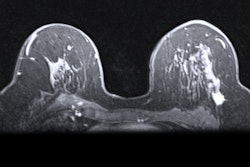
Approximately 25% of annual U.S. healthcare spending -- $760 billion to $935 billion -- can be considered waste, according to a new report published online October 7 in the Journal of the American Medical Association.
The researchers also found that $191 billion to $282 billion could be saved each year if interventions to address healthcare waste were put into place.
The U.S. spends up to $3.6 trillion per year on healthcare, which represents about 18% of its gross domestic product (GDP), according to the report. Researchers from Humana and the University of Pittsburgh School of Medicine conducted this study as a follow-up to a 2012 study, also published in JAMA (Berwick et al, April 11, 2012, Vol. 307:14, pp. 1513-1516).
The team led by Dr. William Shrank, Humana's chief medical and corporate affairs officer, used data from 54 publications and governmental reports to estimate levels of waste in the U.S. healthcare system in the following six areas:
- Administrative complexity
- Failure of care coordination
- Failure of care delivery
- Fraud and abuse
- Overtreatment or low-value care
- Pricing failure
The researchers found that the biggest source of waste was "administrative complexity," which they suggested could be mitigated as healthcare transitions to value-based payment models and tools such as prior authorization are implemented. The second greatest source of waste was pricing inefficiency.
| Causes of waste in U.S. healthcare | ||
| Area of waste | Estimated range of total waste cost (in billions) | Estimated annual savings from interventions (in billions) |
| Administrative complexity | $265.6 | N/A |
| Pricing inefficiencies | $230.7 to $240.5 | $81.4 to $91.2 |
| Care delivery failures | $102.4 to $165.7 | $44.4 to $93.3 |
| Overtreatment or low-value care | $75.7 to $101.2 | $12.8 to $28.6 |
| Fraud and abuse | $58.5 to $83.9 | $22.8 to $30.8 |
| Care coordination failures | $27.2 to $78.2 | $29.6 to $38.2 |
Approximately $300 billion in healthcare waste results from overtreatment and care delivery and care coordination failures, the group found.
"However, there is clear evidence that if proven, effective, clinical strategies to improve care available today were scaled nationally, approximately 50% of that waste could be avoided," Shrank and colleagues said in a statement released by Humana.
The study underscores the need to reduce waste in the current healthcare system, according to Shrank.
"By focusing on these opportunities, we could make healthcare substantially more affordable in this country," he said. "In the national debate about health reform, we do not need to start over. We can build on the strengths in today's system to deliver higher quality care and reduce costs, while also producing the necessary savings to expand coverage to all Americans."



















